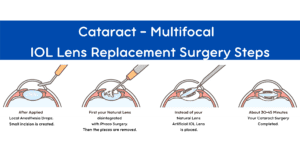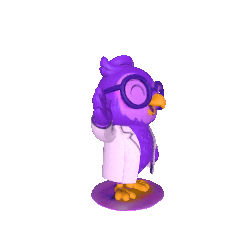Randevu +90 324 238 83 83
Home »
Last updated on October 20th, 2024 at 07:35 pm
Home »

Trifocal Lenses are prosthetic lenses that are place by entering through a (minimally invasive) incision opened from the edge of the cornea during Cataract Surgery. Trifocal Cataract Surgery, allow you to see far, middle and near distances. Since Trifocal Lenses correct ametropia (nearsightedness), medium (Hypermetropia) and reading vision (Presbyopia), it also allows you to see far, medium and close distances without glasses. Patients who have cataract surgery by having Trifocal lenses placed to their eyes can see near, middle and far distances without glasses. Trifocal Cataract Surgery can be prefer for patients over the age of 40-45 who have cataracts or have visual impairments that are too high to undergo Laser eye surgery. If you have astigmatism, the type of lens is use as “Trifocal-toric” lens. Toric lenses are more expensive than other lenses.
Especially with the increase of Cataract grade, it is possible to experience age-related vision loss at all levels after the age of 60. If you are unsure whether this is due to a Cataract, you may still be eligible for lens replacement surgery. After all, this is an operation in which your natural lens can be replace with an artificial lens. In particular, it is necessary to make a very accurate and careful decision.
If wrong type of lens is use on unsuitable eyes, there will be permanent side effects. Permanent problems such as poor vision, flashing of light, glare at night and similar may occur. In particular, with Myopic (Nearsightedness) patients, if they don’t have Cataract problem, should be very careful if they want to have Bifocal or Trifocal lens replacement surgery. It is a medical fact that, with Hyperopia (Farsightedness) patients, Trifocal or Bifocal lens replacement could be more satisfactory with this treatment. Make sure that our eye surgeons will give you the most accurate information as a result of your examination.
Today, with the advancement of Phaco technology is use in Cataract surgery. Especially since our eye surgeons have wide experience and use new technologies, our patients can operate safely. Our highly experienced and expert eye surgeons will give you clear information to make the right decision. Lens replacement surgeries are very safe and a common surgical procedure performs in our clinics.
There are many lens manufacturers available for prosthetic lens selection. Especially our eye surgeons, the decision is made by researching the features of all lens manufacturers and choosing the most suitable one for the patient. The country in which the lens is manufactured is not a priority. The most important thing in lens selection is to determine the most suitable lens for your eye as a result of diagnosis. The most suitable lenses for our patients are offer with alternatives and we can provide for you from the any manufacturer.
Naturally, it may seem difficult for you to decide who to trust, but the most important thing is to take the time to make your decision and research your options thoroughly. We want you to be sure that you will make the right decision for the selection of the most suitable lens for your eyes with our experienced and expert surgeons. For this reason, lenses are not sell in our hospitals in order to offer transparent and clear costs to our patients. We ensure that the most suitable lenses are use for you.
If you are wondering if you can have Cataract Surgery? You can now make your Cataract consultation appointment from the Mersin Vizyon Eye Hospital. If lens replacement is not suitable for you, our experts will try to offer you alternative solutions. To learn more about what our centers have to offer and to get answers to your questions, we ask you to reach out to our experts directly.
Phakic Intraocular ICL Lens Surgery.
Our Experienced Eye Surgeons. Phakic intraocular ICL Lens Surgery. Vitrectomy Surgery. Cataract Surgery Medical Description Wiki. Cataract and Lens Replacement Eye Surgeries. Keratoconus Cross-Linking Surgery. Blepharoplasty Aesthetic Surgeries. Dry Eye Syndrome Treatments. Periodic Eye Examinations.
Trifocal Cataract Surgery can be apply to patients over the age of 50 and with suitable eye structure under normal conditions. Being a cataract patient and weakening of your vision determines the time of your cataract surgery. Not everyone can have cataracts. If your cataract does not prevent you from seeing clearly, you do not need to rush to have surgery. Our eye surgeons will give you the most accurate information.
Especially Trifocal Cataract Surgery is recommended for patients who develop cataracts and whose vision is less than 6/10, even with glasses. Cataract is a disease and causes blurred vision. If the cataract is making it difficult for you to do your normal activities, your doctor may recommend cataract surgery.
In most cases, waiting to have cataract surgery won’t hurt your eye, so you’ll have time to consider your options. The onset of cataract does not mean that you have cataracts. If your vision is still pretty good, you may not need cataract surgery for many years.
Especially after cataract surgery, your vision will be improve within a few days. Your vision may be blurry at first as your eyes begin to improve and return to normal.
Colors and environment may appear brighter after surgery because you are looking through a new lenses. It is normal to feel itching and mild discomfort for a few days after surgery. Avoid rubbing or pushing your eye. Our eye surgeon may want you to wear an eye patch or safety glasses on the day of surgery. Your doctor will remove the eye patch a few days after the surgery. Our eye surgeon may prescribe eye drops or other medications to prevent infection, reduce inflammation, and control eye pressure. Sometimes these drugs can be injected into the eye during surgery. After a few days, most of the discomfort should go away. Most of the time, full recovery occurs within eight weeks.
We advise that patients who have undergone cataract surgery wait a minimum of three days before returning to work. However, as everyone is different, your surgeon will make the best recommendation for you.
It’s easy to book eye examination and take the first step on your journey to better vision.
Cataract surgery removes your cloudy natural lens and replaces it with a premium synthetic lens. The lens is specially design to improve your vision, so you don’t have to rely on glasses and contact lenses.
No you are not! Synthetic lenses places in the eye, unlike contact lenses, which sit on the surface.
Especially, the natural lens, known as the crystalline lens, needs to be transparent to allow you to see clearly. Cataracts is a term used to describe cloudy patches that can develop over time within the lens. The cloudy patches cause blurry vision. Cataracts usually develop as we get older, but can be removed through a procedure that replaces your cloudy natural lens with a clear artificial intraocular lens.
Generally, Cataracts can cause symptoms such as misty or blurry eyesight, glare and halos around bright lights. Also difficulty seeing at night or in low light conditions. Therefore cataracts can also cause a change in the perception of color since colors will appear less vibrant and faded when the natural lens becomes cloudy.
Especially cataracts are not contagious and they cannot spread from one eye to the other. However, if a patient develops a cataract in one eye, it is likely that they will go on to develop a cataract in the other eye as well.
Normally cataract surgery usually takes less than 20 minutes per eye to perform. As surgery is carried out under local anesthetic, you will be able to return home after your treatment.
During laser-assisted cataract surgery, the surgeon will use a femto laser to create a small opening on the surface of your eye in order to get access to your natural lens. The contents of the natural lens bag are then carefully removed and the premium synthetic intraocular lens is put in place.
Generally, cataract surgery is performed under local anesthetic, so you won’t feel any pain during the course of the procedure. After surgery, patients generally experience some temporary and mild discomfort as the anesthetic wears off.
Sometimes, if you need surgery on both eyes, each eye can be treated on the same day which we don’t recommend that. Generally, cataract surgery performs on separate days. However, our eye surgeon will discuss your surgery options with you during your consultation.
At Vizyon Eye Hospital, we are proud to report that 99% of our patients achieve driving standards or better following their cataract procedure.
At Vizyon Eye Hospital, we provide premium Bfocal and Trifocal lenses that can correct long-sightedness, short-sightedness and reading vision, therefore reducing your reliance on glasses or contact lenses. If you opt for a Monofocal lens you should achieve an excellent level of distance vision but may still need reading glasses for reading or for close-up work.
Randevu +90 324 238 83 83
